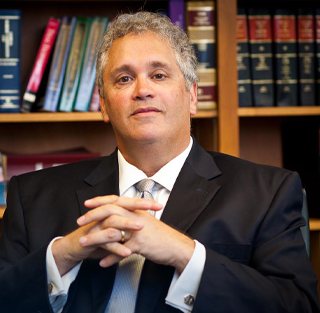Getting Justice For Victims Of Sexual Assault/Rape In Georgia
The Georgia Bureau of Investigation’s data reveals approximately 2,700 sexual assaults reported annually — a low estimate, given National Sexual Violence Resource Center statistics, which show about 63 percent of all sexual assaults and 88 percent of such crimes against children are not reported to police.
If investigators can gather sufficient evidence, cases are referred to prosecutors, tasked with proving guilt beyond a reasonable doubt, which is the highest standard for proof burdens. Conviction can result in jail, prison, fines and victim restitution. However, the criminal justice system isn’t the only avenue available for victims of sexual assault to be compensated.
Under certain circumstances, Georgia rape victims can file lawsuits to recover damages from third parties for medical and therapy bills, lost wages, physical pain and suffering, emotional anguish and loss of life enjoyment. Atlanta sexual assault victim lawyers can pursue compensation from the actual perpetrator and/ or (more likely) one or more third-parties.
Examples of potential defendants in sex crime civil cases include:
- Property owners (apartment complexes, HOAs, shopping plazas, hotels, cruise ships, nightclubs, theme parks, etc.);
- Those with special relationship/ duty of care to plaintiff (security firms, daycare owners, sports or other recreational leagues, religious institutions, schools, etc.).
Sex crime tort cases are typically complex and sensitive, requiring Georgia civil injury claim attorneys with skill and extensive experience.
Atlanta Sexual Assault Victim Lawyers Explain Third-Party Liability
The concept of third-party liability for sex crimes can seem foreign at first blush because it involves accountability for a crime someone else committed. However, these are civil and not criminal matters. It’s not about “guilt” or “innocence.” It’s about negligence, which is proven by the lower standard of preponderance of the evidence, as opposed to the beyond reasonable doubt standard of criminal cases.
The difference is why civil claims can prevail when criminal cases cannot. Take for example the high-profile case against entertainer Bill Cosby. He was accused of sexual assault over a period of decades by more than 60 women. One of those reported the alleged incident to police shortly after it happened in 2004. Investigators concluded evidence insufficient to file criminal charges, but the victim later secured a $3.4 million civil settlement from Cosby. Of course, more than a dozen years later, when a flood of victims came forward, investigators revisited that 2004 claim, filing felony charges just before the statute of limitations expired. Cosby was later convicted of three felony sex crimes and sentenced to 3 to 10 years in prison.
This civil claim recourse is especially important for victims of sex crimes, given that arrests are made in less than 6 percent of all estimated sex crimes. Per a Washington Post analysis of federal data, only 1.1 percent of all estimated sexual offenses are referred for prosecution and less than 1 percent of the total end in felony conviction. Partly this is because rapes and sexual assaults are so vastly underreported. However, they are also notoriously difficult to prove under rigid criminal justice standards absent physical evidence or witnesses. For many survivors of rape and sexual assault, civil litigation is their only means to justice.
Who Can Be Sued for Third Party Liability in Georgia Sex Crimes Cases?
The Cosby case is an example of how civil law allows victims of sex crimes to pursue claims for intentional torts directly against a perpetrator. However, this isn’t always a worthwhile route because many sexual offenders and predators aren’t independently wealthy (and no insurer is going to extend coverage for an intentional criminal act). That’s why injury lawyers often turn their primary focus onto third parties, accused not of a crime but of negligence by way of some failure to protect plaintiff or vet/supervise defendant.
Usually, Atlanta sex crimes litigation against third parties involves a property owner or a management company who breached a duty of care to protect victim, allowing a perpetrator an opportunity for the crime that may not otherwise have existed. These are premises liability claims. Property owners – and businesses especially – owe anyone lawfully on site a duty of care to maintain it in a reasonably safe condition and address known or foreseeable risks. Potential for risk can be deemed foreseeable if there is a history of substantially similar crimes on site.
One example of a premises liability sex crimes case was the 1997 Georgia Court of Appeals matter of Doe v. Briargate Apartments, Inc. Plaintiff was beaten, raped and robbed inside her apartment by an intruder who entered through a second-story window. Victim filed a claim of third-party liability against the landlord of the property, alleging inadequate security and failure to maintain the apartment, which gave her rapist an easier attack route. Although the court affirmed summary judgment favoring the apartment complex on the maintenance issue, it reversed on the claim of inadequate security. Plaintiff herself had been targeted for violence at the same site before, when another man broke into her home, assaulted and robbed her. The crime was reported both to police and the apartment complex managers. Defense tried to argue the two crimes weren’t “substantially similar” for purposes of establishing foreseeability of the second because plaintiff did not report being sexually assaulted in the first. The court rejected that argument, further noting that security on site had been hired to protect property, not resident safety.
In addition to premises liability, Georgia sexual assault injury claims can also be filed for things like negligent hiring or retention of perpetrator as an employee or failure to supervise plaintiff or attacker when there was a duty to do so.
Sometimes third parties have a special relationship to the victim (i.e., daycare providers, schools, sports or recreational leagues, religious institutions, corrections and detention facilities, cruise lines), that result in a higher standard of care. If an attack occurred while perpetrator was working or was somehow facilitated by the job, employers might be held vicariously liable (meaning they weren’t negligent, but under certain circumstances can be held responsible for employee’s negligent/criminal acts).
The foregoing answers are not legal advice and are merely a general overview. You are advised to consult a lawyer to address your specific situation regarding your situation. For more information or to inquire about a free consultation, contact Stephen D. Apolinsky, an experienced Atlanta sexual assault victim attorney, at Apolinsky & Associates at (404) 377-9191 or email him at steve@aa-legal.com. Your communication will be held in strict confidence.



